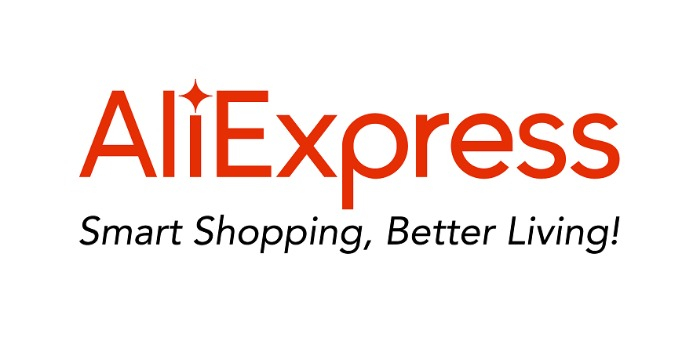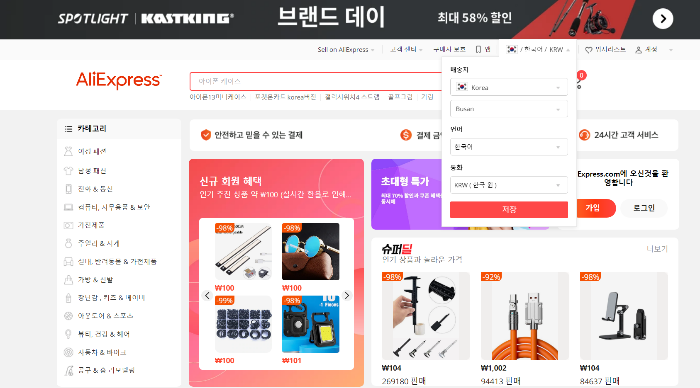E-commerce
AliExpress’ zero-commission offer jolts Coupang, Naver
Industry watchers say AliExpress’ rapid expansion in Korea could trap domestic companies in the 'Alibaba ecosystem'
By Jan 31, 2024 (Gmt+09:00)
2
Min read
Most Read
LG Chem to sell water filter business to Glenwood PE for $692 million


Kyobo Life poised to buy Japan’s SBI Group-owned savings bank


KT&G eyes overseas M&A after rejecting activist fund's offer


StockX in merger talks with Naver’s online reseller Kream


Mirae Asset to be named Korea Post’s core real estate fund operator



AliExpress, an e-commerce arm of China’s Alibaba Group, has offered Korean companies zero commissions, under which it will not charge a sales fee through the end of March this year, a move that would jolt the domestic online retail market dominated by Coupang Inc. and Naver Corp.
The decision is seen as part of efforts to encourage a larger number of Korean brands to sell products on AliExpress so that it can diversify its product assortment and shed its image as a low-quality Chinese goods vendor.
Manufacturers usually pay a 10-20% sales commission to online retailers in return for using their marketplace. No sales commission means a 10-20% rise in their sales margin.
“AliExpress’ zero-commission offer is jaw-dropping,” said a Korean consumer goods company official. “There is no reason to refuse it.”
Since AliExpress launched a South Korea-dedicated platform in 2018, it has been expanding its customer base from those in their 20s and 30s to middle-aged consumers.
It created the K-Venue category on its platform for Korean products in October last year and has since been increasing the number of Korean brands in the segment.
Korean brands available at AliExpress include LG H&H Co., formerly LG Household & Health Care; beauty product maker Aekyung Industrial Co. and tissue paper companies KleanNara Co. and Yuhan-Kimberly Ltd.

FACTORY DIRECT SHOPPING
Additionally, Alibaba is seeking to penetrate the Korean wholesale market.
It is slated to launch a Korean language service of wholesale marketplace 1688.com, where users can buy goods directly from the factory in bulk at nearly half the retail price, cheaper than from AliExpress and Temu.
Quite a few domestic e-commerce platforms such as Gmarket and 11Street purchase Chinese goods through 1688.com.
ALIBABA ECOSYSTEM
Retail industry observers warned that 1688.com's entry into Korea would have a bigger ripple effect on the domestic e-commerce market than that caused by AliExpress and Temu.
They said domestic companies could end up being trapped in the Alibaba ecosystem by purchasing goods in bulk from 1688.com and selling them on AliExpress.

“Alibaba’s move hints at its intention to gradually expand its presence in the domestic retail market from B2B, which provides products to wholesalers, to B2C, which connects sellers and consumers,” said a domestic e-commerce platform official.
According to data provider WiseApp, monthly AliExpress users surpassed 6 million in October of last year when it launched the K-Venue category and rose to 7.13 million in December. That compared with 3 million at the start of last year.
The December figure is closer to 11Street’s monthly user number of 7.68 million. AliExpress is the country's third-largest e-commerce platform after Coupang and 11Street in terms of monthly active users.
Write to Jae-Kwang Ahn and Sun-A Lee at ahnjk@hankyung.com
Yeonhee Kim edited this article.
More to Read
-
 E-commerceCoupang to resume Rocket Delivery for LG H&H; ends 5-year feud
E-commerceCoupang to resume Rocket Delivery for LG H&H; ends 5-year feudJan 12, 2024 (Gmt+09:00)
2 Min read -
 Mergers & AcquisitionsH&Q, Aeneas PE put online retailer 11Street on the market
Mergers & AcquisitionsH&Q, Aeneas PE put online retailer 11Street on the marketJan 08, 2024 (Gmt+09:00)
2 Min read -

-
 RetailAlibaba launches express ships to S.Korea as orders surge
RetailAlibaba launches express ships to S.Korea as orders surgeJul 20, 2023 (Gmt+09:00)
3 Min read
Comment 0
LOG IN


